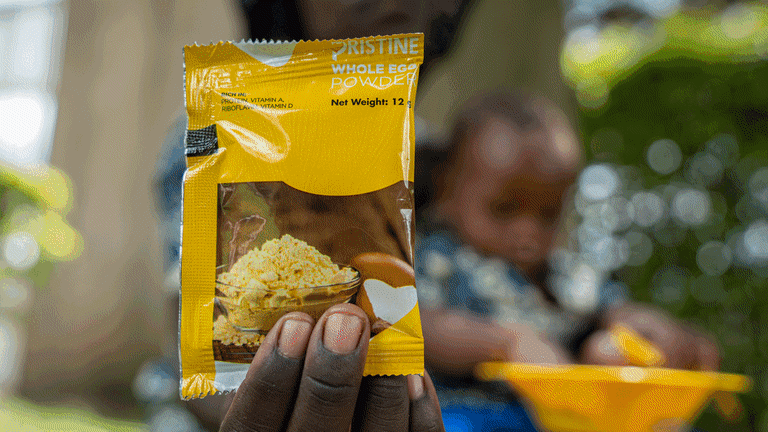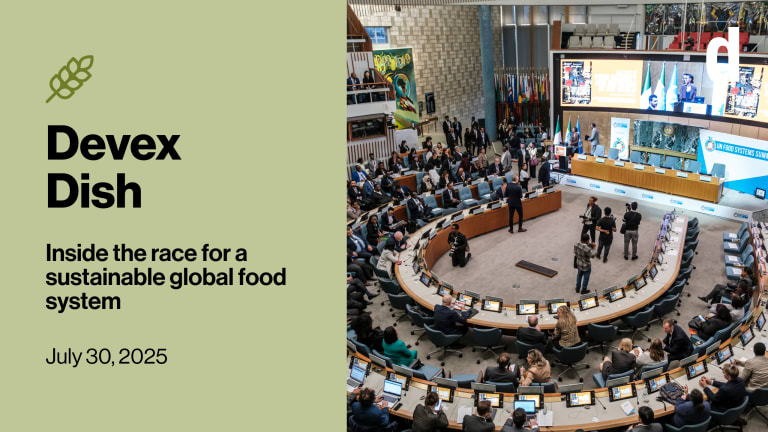
Today, at least 1 in 3 people on the planet are consuming nutritionally poor diets. A poor diet is a driver of malnutrition in all its forms: From undernutrition and micronutrient deficiencies to overweight and obesity. Six out of the top 11 risk factors in the global burden of disease are related to poor diet.
Working with partners, the Global Alliance for Improved Nutrition believes making healthier food choices more affordable, more accessible, and more desirable is critical to tackling this problem.
Celebrating our 15th birthday in 2017, GAIN has significant experience in tackling malnutrition, and these are some of the lessons we’ve learned along the way that are shaping our next steps.
1. Alliances are key.
Malnutrition is caused by a number of powerful forces that work together, seemingly in concert, and overcoming it requires strong stakeholder partnerships to coalesce and work together. GAIN puts this into practice with initiatives such as the Scaling Up Nutrition Business Network, which we co-convene with the World Food Programme, the Global Fortification Data Exchange, and countless other global and national alliances. Alliances are core to solutions.
2. Private sector needs to be in the conversation.
From the outset, GAIN was bold enough to identify that the private sector may be a part of the problem, but it also has to be part of the solution to malnutrition. This is a far less controversial thing to say today.

Speaking at our Geneva birthday party, David Nabarro, who was present at GAIN’s creation, reminded us of how so many at the time were opposed to setting up GAIN, or to any initiative that sought to engage business in tackling malnutrition. The Sustainable Development Goals, the Scaling Up Nutrition movement, and the United Nations' Decade of Action on Nutrition all recognize the potential positive contributions that responsible businesses can make to improve nutrition. But 10-15 years ago, unfamiliarity bred fear and distrust. As different stakeholders work together more frequently, trust is built up between those that earn it with reputations, good and bad, established through repeated interactions. Making markets work for nutrition is here to stay.
3. The nutrition world needs to be in the food system.
GAIN helped bring the nutrition world into the food system, perhaps not in a way that was so cognisant of the need to change the food system, but knowing that one had to work up and down it if large scale food fortification was to have a positive impact on nutrition. The world — and our own nutrition sector — is now waking up to the undeniable fact that while food systems need to be guided by government-led public health goals, they are actually powered by private sector investment and entrepreneurs from “farm to fork,” micro, small, medium, and large. It is not just agriculture that needs to become more nutrition sensitive, it is food trade, storage, transport, processing, marketing, retailing, and advertising too. This food systems approach has to become the new normal to guide program work.
“These challenges only seem difficult because we have not applied enough imagination, problem solving, resources and grit towards resolving them.”
— Lawrence Haddad, executive director, GAINThis system approach is designed to help GAIN have impact at scale. Take Universal Salt Iodization — we work with governments and producers to develop and implement salt iodization programs, working with producers, processors, regulators, and consumers. It takes an investment of just $25 to protect at least 100 people with a lifetime of adequately iodized salt, improving health and protecting against iodine deficiency disorders such as debilitating brain damage. Since 2008, our USI program in partnership with the United Nations Children's Fund has supported 17 countries across Africa, Asia, and Eastern Europe, including Afghanistan, Bangladesh, China, Egypt, Ethiopia, Ghana, India, Indonesia, Niger, Nigeria, Pakistan, Philippines, Senegal, and Tajikistan.
In this time we helped to protect an additional 466 million people in 17 Asian and African countries against iodine deficiency. This includes an estimated 18.2 million pregnant and lactating women, leading to the protection of newborn cognitive health, as well as 113 million children aged six months to 15 years old who are no longer at risk of the debilitating effects of iodine deficiency. We continue to raise resources for USI in the 19 countries that remain iodine deficient today.
Of course, some people may say USI is an easy thing to do if you want to have impact at scale. We would argue that it may seem easy now — it isn’t — but it seemed a lot harder back in the 1980s and 1990s. It is the hard work over decades by many stakeholders working together that has made salt iodization the norm, at least outside of the 19 countries where USI has still to break through.
Opinion: Fighting hidden hunger with data
What do blindness, stunted growth, and brain damage in children all have in common? They can all be caused by a form of malnutrition. The Food Fortification Initiative, Global Alliance for Improved Nutrition, Iodine Global Network, and Micronutrient Forum explain why fortification is the key to solving this problem and how a new global data tool is changing the landscape on how this work is done.
In fact, it is striking how many food related things in the second decade of the 21st century seem so difficult to achieve: Finding ways of engaging adolescents to shift their diets towards healthier food choices; managing rapidly urbanizing food systems so that they make nutritious food cheaper and more desirable; supporting companies small, medium, and even large that want to make a strong business case out of delivering nutritious foods to consumers; and creating functioning cold chains in low-income settings so that the most nutritious food does not rot in the field, in storage, or in transit carts. These challenges only seem difficult because we have not applied enough imagination, problem solving, resources, and grit towards resolving them.
We must not be complacent. In 15 years we have seen some real achievements — reductions in global stunting for example — but also some menacing new trends in global overweight and obesity rates, and even last year a rise in the number of hungry people. But it does feel as if we are at last moving the agenda to addressing the core problem of how to build a food system that engenders healthy and nourishing diets for all. Nutrition has come in from the cold.
GAIN at 15 is now in full-blown adolescence in the sense that we are constantly balancing the risk-taking experimentation necessary to achieve food system breakthroughs in thinking and action with the more systematic planning and logic needed to actually realize those creative ideas.
Our aim, working with our partners, is to blend these two precious skills so that when people in 2030 look back at the seemingly intractable food and nutrition problems of 2017 they will wonder “Why did people think that was so difficult back then?”
For more information on GAIN’s work and to join the endeavor as they tackle malnutrition, click here.








